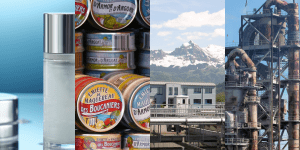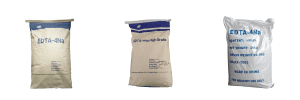
Introduction to EDTA
Ethylene diaminetetraacetic acid, commonly known as EDTA, is a powerful and versatile chelating agent. It is widely recognized for its ability to bind with metal ions, which allows it to perform essential functions in various industries. From industrial applications to consumer products, EDTA has become a critical component in many processes due to its unique properties.
Main Functions of EDTA
- Chelation of Metal Ions: EDTA’s primary function is its ability to chelate, or bind, with metal ions. This property makes it extremely useful in various applications where the control of metal ions is crucial. For example, in the water treatment industry, EDTA is used to remove heavy metals like lead, copper, and calcium from water, preventing scale formation and enhancing water quality.
- Stabilization of Solutions: EDTA is often used to stabilize solutions by preventing the precipitation of metal ions. This is particularly important in the pharmaceutical and cosmetic industries, where the stability of active ingredients is essential for product effectiveness and shelf life.
- Sequestration of Metal Ions in Food: In the food industry, EDTA is used as a preservative to maintain the color, flavor, and texture of food products. By binding with metal ions that could catalyze the oxidation of fats and oils, EDTA helps extend the shelf life of processed foods.
- Industrial Cleaning: EDTA is also employed in industrial cleaning applications. It helps in the removal of metal deposits from surfaces, making it invaluable in sectors like pulp and paper, textile, and metal processing.

Product Advantages of EDTA
- High Chelation Efficiency: EDTA is highly effective at binding with a wide range of metal ions. This efficiency makes it a preferred choice in industries requiring precise control over metal ion concentrations, such as pharmaceuticals, food processing, and water treatment.
- Versatility in Applications: The ability of EDTA to function in various pH environments and its compatibility with numerous substances make it versatile for use in diverse industries, from agriculture to cosmetics.
- Non-Toxicity: EDTA is considered safe for use in many applications, including food and pharmaceuticals. Its non-toxic nature, when used within regulatory limits, ensures that it does not pose significant risks to human health or the environment.
- Cost-Effectiveness: Given its efficiency and wide range of applications, EDTA offers a cost-effective solution for industries requiring metal ion control. Its ability to improve product stability and extend shelf life further enhances its value.
Market Prospects of EDTA
The global market for EDTA is poised for significant growth, driven by increasing demand across various sectors:
- Water Treatment: With growing concerns over water quality and the need for efficient water purification systems, the demand for EDTA in the water treatment industry is expected to rise. Its role in removing heavy metals and preventing scale formation is crucial in ensuring safe and clean water.
- Pharmaceuticals and Cosmetics: As the pharmaceutical and cosmetic industries continue to expand, the need for EDTA as a stabilizing agent will grow. The increasing demand for products with longer shelf lives and better stability will drive the market for EDTA.
- Food Industry: The global food industry is also a significant market for EDTA, where it is used as a preservative to enhance the shelf life and quality of food products. The rise in processed and packaged foods will further boost the demand for EDTA in this sector.
- Agriculture: EDTA is increasingly used in agriculture to enhance the availability of essential micronutrients to plants. As the global demand for higher agricultural yields continues to grow, the use of EDTA in fertilizers is expected to expand.

Conclusion
EDTA’s unique ability to chelate metal ions makes it an indispensable component across multiple industries. Its high efficiency, versatility, non-toxicity, and cost-effectiveness position it as a preferred choice for applications ranging from water treatment to food preservation. With the rising demand in various sectors, the market prospects for EDTA are bright, and it is set to play a critical role in ensuring the quality and stability of products worldwide. As industries continue to innovate and expand, the relevance and demand for EDTA will only grow, making it a vital ingredient in the global market.
https://www.april-chem.com/product/ethylene-diamine-tetraacetic-acid%ef%bc%88edta%ef%bc%89/


